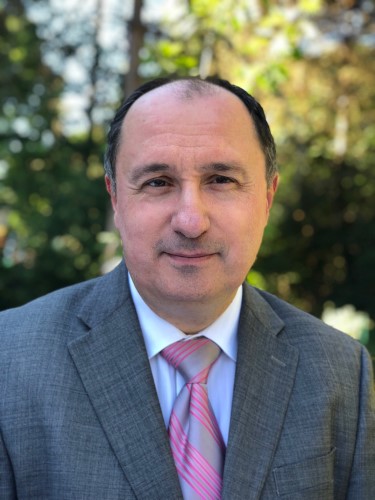

Piotr Piecuch

Born January 21, 1960 in Wrocław, Poland.
MSU Foundation Professor and University Distinguished Professor, Department of Chemistry, and Adjunct Professor, Department of Physics and Astronomy, Michigan State University, USA.
Email:piecuch@chemistry.msu.edu
Web: external link
Elected Member of the International Academy of Quantum Molecular Science (2018) and the European Academy of Arts, Sciences, and Humanities (2003). Fellow of the Royal Society of Chemistry (2016), the American Association for the Advancement of Science (2011), the American Physical Society (2008), and the Alfred P. Sloan Foundation (2002-2004). Distinguished Fellow of the Kosciuszko Foundation Collegium of Eminent Scientists (2015). Invited Fellow of the Japan Society for the Promotion of Science (2005). Xingda Lecturer, Peking University, China (2019). Lawrence J. Schaad Lecturer, Vanderbilt University (2017). S.R. Palit Memorial Lecturer, Indian Association for the Cultivation of Science (2007). MSU Foundation Professor, Michigan State University (2020). Clark Way Harrison Distinguished Visiting Professor, Washington University in St. Louis (2016). Invited Professor, Institute for Molecular Science, Okazaki, Japan (2012/2013). University Distinguished Professor, Michigan State University (2007). Professor Catedrático Visitante, University of Coimbra, Portugal (2006). Visiting Professor, Kyoto University, Japan (2005). QSCP Promising Scientist Prize (2004). Wiley-International Journal of Quantum Chemistry Young Investigator Award (2000). Polish Chemical Society Award for Research (1992, 1986). Minister of National Education of Poland Award for Outstanding Doctoral Dissertation (1989). Polish Chemical Society Award for the Best Master of Science Dissertation in Poland in Academic Year 1982/1983 (1983).
Author of:
Important Contributions:
- Coupled-cluster and many-body theories. Method of moments of coupled-cluster equations. Renormalized coupled-cluster and equation-of-motion coupled-cluster approaches. Active-space coupled-cluster methods and their extensions to excited, electron-attached, and ionized states. Early contributions to state-universal and state-specific multi-reference coupled-cluster theories. Coupled-pair approaches for strongly correlated systems. Linear scaling local correlation coupled-cluster methods for large systems and their multi-level extensions. Linear response coupled-cluster methods for properties of arbitrary order. Extended coupled-cluster methods for bond breaking. Examination of exactness of exponential wave function expansions involving two-body correlation operators. High-level coupled-cluster energetics by a combination of stochastic wave function sampling and deterministic moment expansions. Spin adaptation. Lower bounds to energy in many-electron systems. Potential energy surface extrapolation schemes by correlation energy scaling.
- Theory of intermolecular forces. Classification and analytical description of two- and many-body long-range intermolecular potentials using irreducible tensor formalism and angular momentum recoupling techniques. Invariance properties of multipole expansions.
- Applications of quantum chemistry to problems of experimental interest. Ro-vibrational and electronic spectra of molecules and weakly bound clusters, reaction mechanisms, dynamics of photo-induced processes, structural and electronic properties of metallic clusters, bioinorganic chemistry, catalysis, photochemistry, and photoelectron spectroscopy.
- Nuclear physics. Introduction of quantum-chemistry-inspired coupled-cluster methodologies to nuclear structure theory. Extension of coupled-cluster methods to three-nucleon forces.